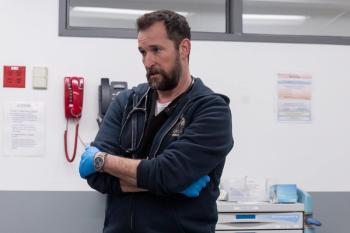
As Crozer Health closes, Pennsylvania officials look at private equity in hospitals
Prospect Medical Holdings is shutting down Crozer and its two hospitals in the Philadelphia area. Officials say they are seeking legislation to prevent it from happening again.
As Crozer Health winds down its operations, Pennsylvania officials say the closure of the system illustrates the damage that comes with private equity ownership of hospitals.
Prospect Medical Holdings, owners of Crozer Health, said last week that
The hospitals have served Delaware County, part of the Philadelphia suburbs, for generations. Prospect says it had no alternatives when a deal to find another operator couldn’t be found.
State and local officials, who gave millions of dollars to keep Crozer open in hopes of buying time to find another buyer, condemned Prospect for shutting down the hospitals.
But officials have said that Crozer Health was undermined by private equity ownership that stopped investing in facilities and equipment and scaled back services. Leonard Green & Partners, a private equity firm, held majority ownership in Prospect Medical Holdings from 2010 through 2021. State and local officials point to Prospect’s closure of two other Crozer hospitals in Delaware County in 2022: Delaware County Memorial Hospital and Springfield Hospital.
Pennsylvania Gov. Josh Shapiro has called for passing legislation to prohibit private equity ownership in his budget address earlier this year. He renewed the call for that legislation after Prospect announced it was closing Crozer Health last week.
“Prospect caused this crisis, and they must be held accountable for their reckless actions that have led to today’s announcement,” Shapiro said in a statement last week. “Their conduct and mismanagement must be fully reviewed in the bankruptcy legal process to hold them to account under the law, and we must ensure this never happens again by passing legislation to get private equity out of the health care business in Pennsylvania.”
Seeking safeguards
Monica Taylor, chairwoman of the Delaware County Council, faulted the private equity control of Crozer Health for the closure of the two hospitals. Four years ago, the county of 584,000 had six hospitals. When Crozer Health shuts down, the county will have two hospitals remaining.
Taylor called the closure of Crozer Health a “prime example” of what goes wrong with private equity ownership of hospitals.
“When you have this model of private equity, it just does not belong in health care,” Taylor told Chief Healthcare Executive.
Taylor said Prospect Medical Holdings didn’t invest sufficiently in Crozer Health’s hospitals, and she said the deteriorating condition of the facilities played a role in the inability to find another health system to take over Crozer. Taylor said the facilities needed significant investment and repairs.
“They continued to strip away everything that they could in all four hospitals until they got to the point where it was no longer profitable, and that is why they're walking away at this point,” Taylor said. “And when their model is profits over people, then it's not about health care anymore. So this is definitely the prime example of why private equity should not be in healthcare.”
A coalition of several state lawmakers representing Delaware County also issued
“Private equity’s decimation of Crozer is an abomination – the corporate abuse that our hospitals went through should be criminally illegal, and the investors and executives who did this to us should be held accountable,” the lawmakers said.
They also called for Congress and legislators in every state to take steps to ensure communities aren’t hurt by private equity ownership of hospitals.
“As Crozer demonstrates, privatization and for-profit systems are the problem, not the solution. We need bold action for the public interest,” the lawmakers said.
In Shapiro’s
Shapiro called for safeguards to protect patients, including giving the Pennsylvania Office of Attorney General the power to review sales, mergers and acquisitions of hospitals.
He also said he wants to end “leaseback arrangements,” where private equity-backed hospitals and nursing homes sell land and rent it back, forcing the organizations to pay rent on land they once owned and going deeper into debt.
“I’m done letting private equity treat Pennsylvania hospitals like a piggy bank they can empty out and smash on the floor,” Shapiro said in his budget address. “As a Commonwealth, it’s time for us to stand up for our local hospitals and nursing facilities and put in place real safeguards against private equity.”
‘Never happen again’
Peggy Malone, a nurse at Crozer-Chester Medical Center, said she hopes the closure of Crozer Health could be a catalyst to approving legislation that would lead to reform of private equity ownership of hospitals.
Malone pointed to Crozer staff being forced to use outdated equipment. She also recalls scrambling to get TV service restored two days before the hometown Philadelphia Eagles played in the Super Bowl in February.
“They let equipment break and fall apart,” Malone told Chief Healthcare Executive. “They let ambulances have more than 300,000 miles. They let the walls crumble outside of the building.”
Lawmakers in Congress are also increasingly casting a critical eye toward private equity firms owning hospitals, and that’s a sentiment being shared by Republicans and Democrats.
The report also criticized Leonard Green and its ownership of Prospect Medical Holdings, which operates hospitals in Connecticut, Rhode Island, Pennsylvania and California. The report noted that eight of Prospect’s hospitals closed, during or after Leonard Green’s ownership.
Prospect Medical Holdings has said it has invested hundreds of millions of dollars in its hospitals and in providing charity care to patients.
Malone, the president of the Crozer-Chester chapter of Pennsylvania Association of Staff Nurses & Allied Professionals, has testified before state lawmakers looking at private equity ownership in hospitals. Even as Crozer closes, Malone isn't going away.
“I’m going to continue to help make sure that the legislation is passed that for-profits never can do this again to any other community, because the devastation of this is going to last for many years,” Malone told Chief Healthcare Executive.
“This may be the end for Crozer, but it can't be the end across the state, because I will never stop fighting,” Malone said. “This will never happen again.”




























































































